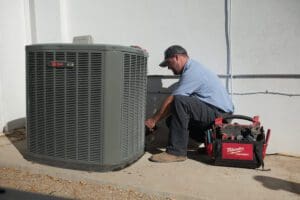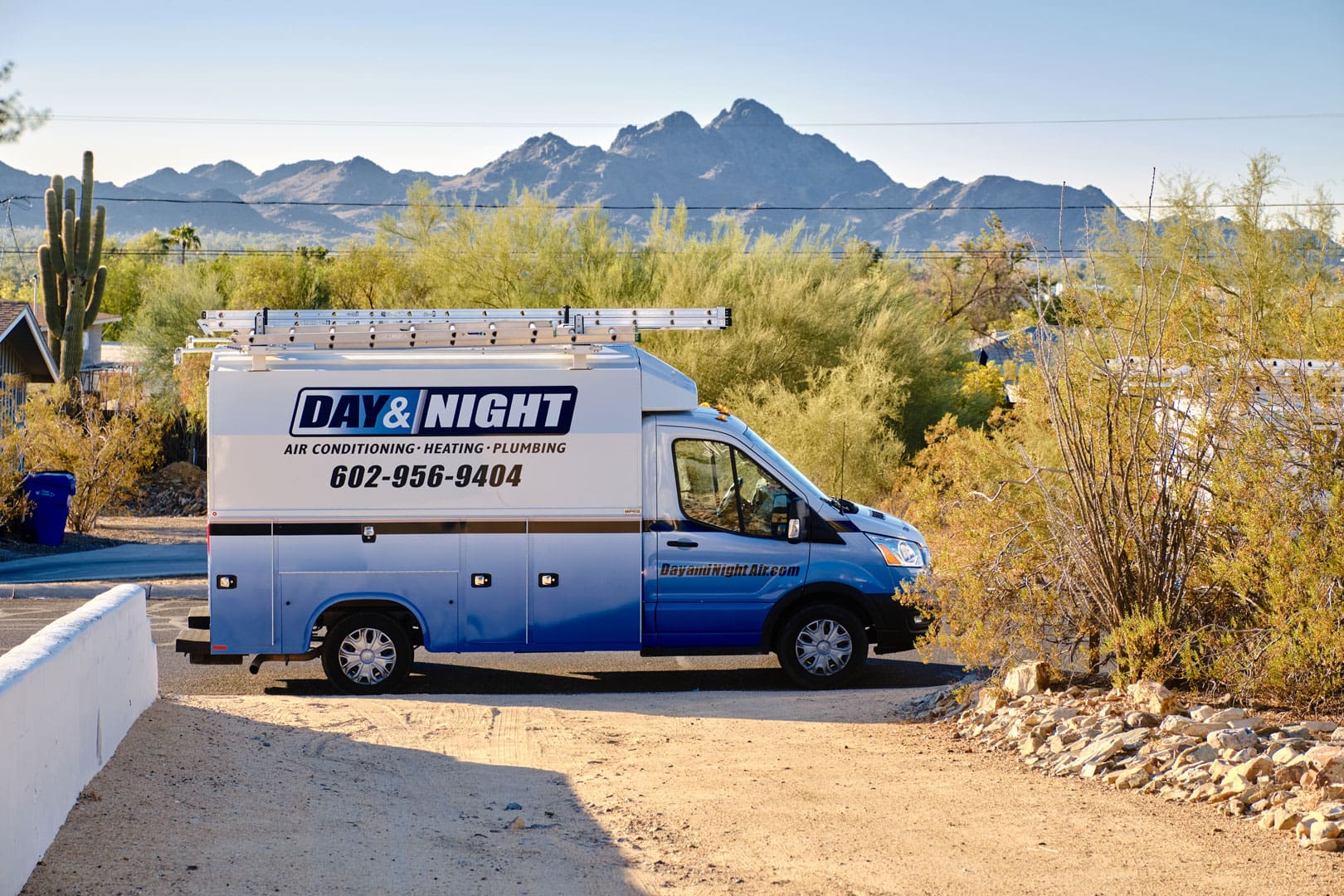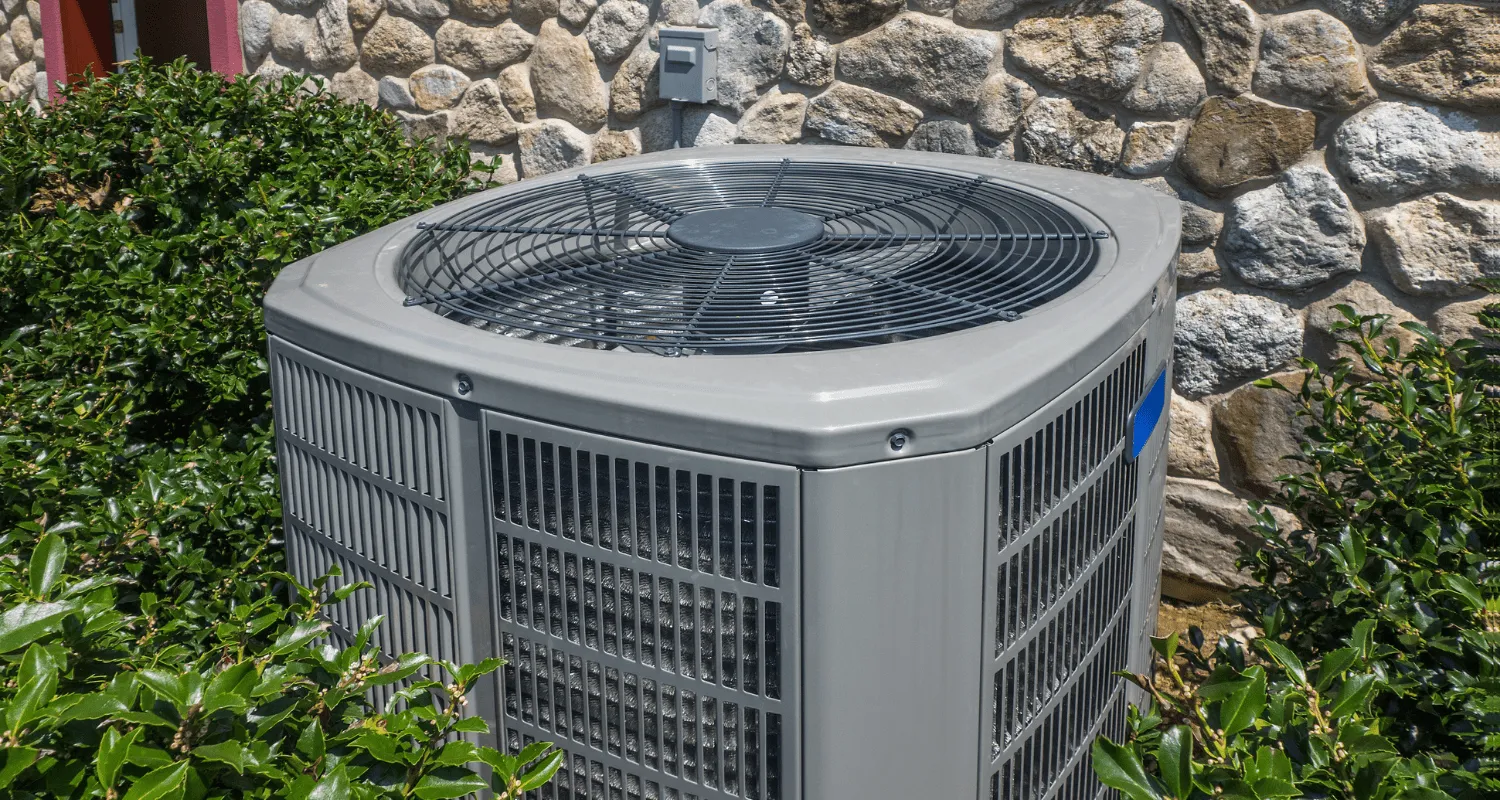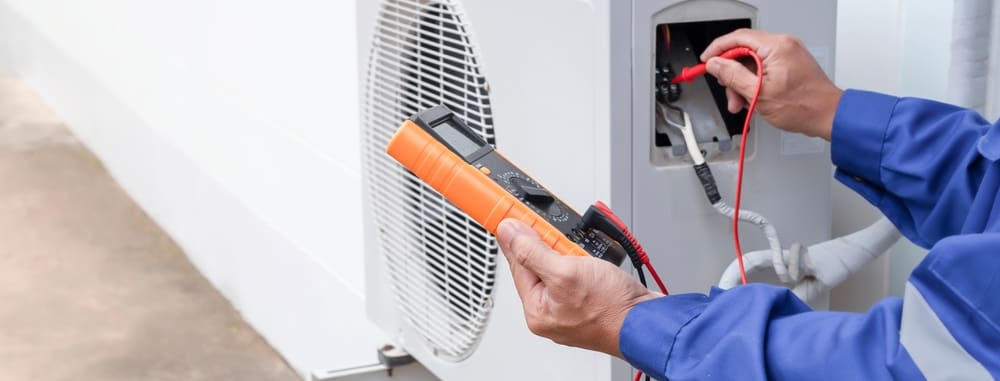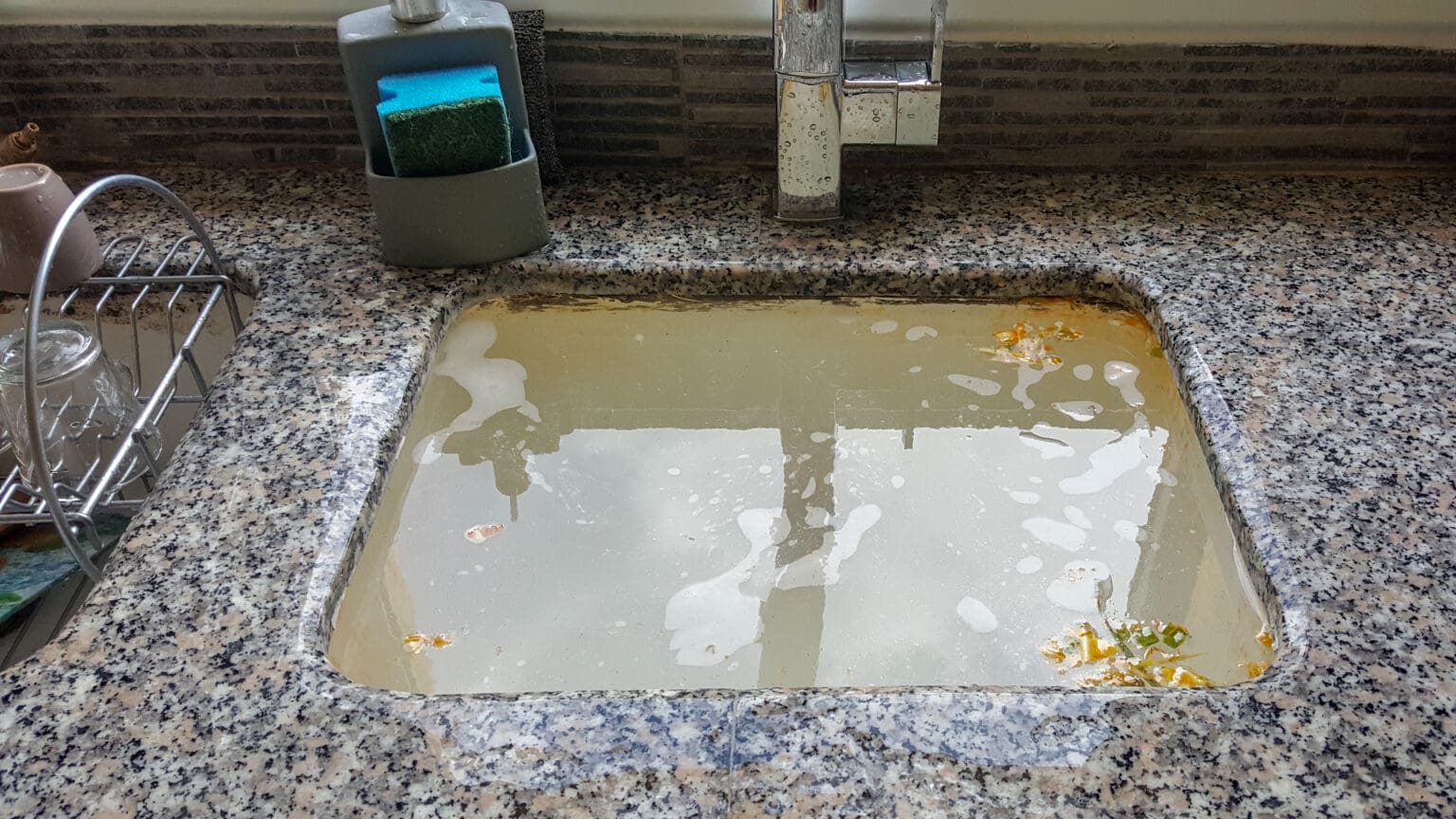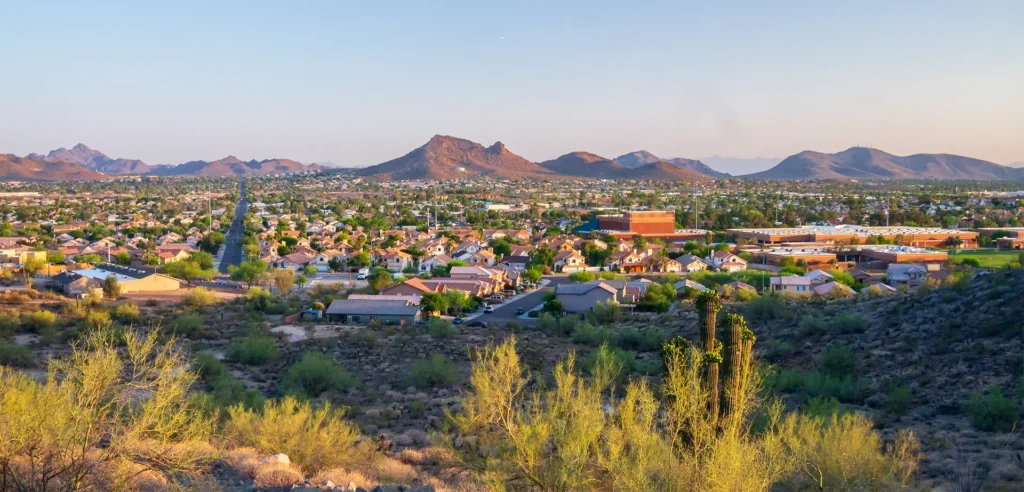Power surges can appear with little warning, and an energy spike of a second or two is sufficient to severely damage electronic components. You probably already take steps to protect your high-tech devices, such as a prized high-definition television or laptop, with a surge suppressor or protector. You may be wondering “Do I need a surge protector for my HVAC or air conditioner?” The answer is Yes, of course you do. Air conditioners contain electrical components such as a compressor pump, fans, blowers, control system, and a thermostat. If you are not using surge protectors for your HVAC system, you are taking a risk with the safety of one of your most expensive appliances. Each of those components can be damaged during a power surge, so you do need a surge protector for your HVAC.
Jump to a Section
- Why are surge protectors important
- What are power surges
- Are the events covered by insurance
- What’s the difference between surge protectors and power strips
- How do surge protectors work
- What surge protection options are there
- How to choose the correct surge protector
- Can you prevent power surges
- Contact us
Why Is It Important To Have an HVAC Surge Protector?
At first glance, it may seem that your Arizona air conditioner is mostly comprised of heavy-duty machinery like fans and other mechanical components. In reality, an AC surge protector is vital for at least two reasons:
- To shield sensitive electronic systems
- To keep you from purchasing expensive replacement parts
Modern air-conditioning systems contain numerous electronic parts. These intelligent components control high-tech features such as precise temperature control, variable-speed operation, smart thermostat compatibility, and noise reduction. Like other electronic devices, air conditioner hardware is extremely vulnerable to power surges.
Cost is another reason it makes sense to invest in surge protection for your Arizona HVAC system. Circuit boards are both expensive to replace and difficult to locate. Model-specific air conditioner electronic components need to be ordered individually. In the meantime, your family has to deal with life without your beloved AC.
Of course, at Day & Night Air, we’re certified and experienced with diagnosing electronic component issues and parts replacement. Like you, we want your family to enjoy an awesome Arizona HVAC system year-round by avoiding power issues in the first place. In order to understand how surge protectors keep your air conditioner safe, it’s important to know exactly what causes these electricity spikes.
What is a Power Surge, and What Causes Them?
Power surges are a sudden spike in voltage traveling through power lines or home wires. Electronic circuits simply can’t handle the added heat that this generates. Home outlets are wired for approximately 120 volts of electricity, and some special 240-volt power sockets supply electricity to heavy-duty equipment. You would never plug a computer into a 240-volt power socket because the excessive current would fry the laptop’s electronic components.
There are a number of reasons why a power surge can happen:
- Lightning storms: A single lightning bolt is capable of generating one billion joules of electricity. This is more than enough to fry all the electronics in your home. Interestingly, storms don’t even have to be nearby for an energy surge to reach it. Bolts can travel as far as 10 miles and power lines can carry the extra charge up to a mile away.
- Fallen power lines: One of the most common causes of power issues, fallen lines can cause power outages, brownouts, and energy surges. This can happen due to line repair errors, construction accidents, winter weather, or high winds.
- Random causes: Sometimes the cause of surges are difficult to pin down. Many power companies state in the fine print that they’re not responsible for random power spikes or weather-caused line issues.

Are Power Surges Covered by Insurance or Warranty?
Some HVAC manufacturers may cover damage to specific components, but repair costs are generally not included. Home insurance coverage may include power surges from manmade sources in certain cases, but policies and items covered vary widely. The best way to protect your air conditioner, and your wallet, is to prevent damage in the first place with a high-quality surge suppressor.
What Is the Difference Between a Surge Protector and a Power Strip?
Many surge protectors have a similar design as power strips — multiple power outlets and an on/off switch — but surge protectors offer far more utility and safety. Power strips only make it easier to plug in numerous devices; they do not protect your electronics. Essentially, plugging your HVAC system into a normal power strip is the same as plugging it into a wall socket.
AC surge protectors, on the other hand, interrupt energy spikes and work proactively to keep your HVAC system safe. Not all suppressors or protectors are the same; some carry a higher price tag in exchange for more comprehensive protection, additional safety features, or an extended warranty against damage.
How Do HVAC Surge Protectors Work?
Surge protectors usually offer one or both of the following types of protection for sensitive electronic components in your air conditioner:
- Diverting excess energy away from electronics
- Breaking the electrical circuit to block overloads
In many cases, the first option is sufficient. When a small power spike occurs, the surge protector simply shunts the excess charge to your system’s grounding wire, keeping the air conditioner connected but safe. In the case of larger power surges, a surge protector for an AC unit detects excess energy and immediately cuts power to it. The surge protector is destroyed, but surge protectors cost far less than a new HVAC compressor.
What Surge Protection Options Are Available?

There are four main styles of surge protector, each with advantages and disadvantages in size, price, and operation:
Whole-home surge protector
Also called a primary surge protector, this device installs where the power line enters your residence. Whole-home surge protectors near you are powerful, and they have a size and cost that matches. Because they aren’t required to sit inside the home, however, accommodating these units isn’t usually difficult, and increased competition has made prices more accessible for many nearby homeowners.
Secondary surge protector
Secondary devices that hardwire into your systems disconnect, secondary surge protectors are plentiful on the market. There is a large range of models available for every price point, making one easy to procure. They also come in 120 volt and 240 volt options.
Combination power strip and surge protector
Similar to other secondary protection options, this popular option lets you plug multiple smaller devices into a single surge protector. Not recommended for an HVAC system near you, there are typically used for televisions and other household electronics.
There is a fourth type of surge protector, known as an uninterrupted power supply (UPS), but this kind of protector is generally used for equipment carrying sensitive data, such as laptops. UPS units have a battery supply that prevents your computer from shutting off when the power goes down. For an HVAC unit, the first three options listed above are more common choices.
How Can I Choose the Correct HVAC Surge Protector?
When shopping for a surge protector, here are the most important factors to look for:
Surge suppression information
Product boxes should clearly state that they are intended for use as surge protectors or suppressors. If a device doesn’t have this information readily available, it’s likely just a power strip.
Warranties
Suppressors often offer a certain type of warranty against damage to your equipment in the event of a malfunction. This can be advantageous, but it’s important to check the fine print. To avoid empty promises, make sure this warranty comes from a reputable manufacturer.
Joules
The amount of protection afforded by the device is measured in joules. Generally speaking, surge suppressors of 1,000 to 2,000 joules are acceptable for smaller electronic devices such as smartphones and tablets. For computer systems and other larger equipment — or if you simply want the best protection possible — look for something rated above 2,000 joules.
Failure indicator
Make sure your surge suppressor allows you to verify functioning at a glance. Many devices have a small red or green light that turns on when the protector is connected. This indicator means that the suppressor is working correctly.
Can I Do Anything To Prevent a Power Surge in the House?

While it’s impossible to completely eliminate the risk of a power spike from outside sources, there are several tips you can follow to reduce the chance of power surges occurring in your home:
1. Replace Surge Suppressors Every Two Years
The length of time surge protectors can hold out varies — it depends on the suppressor’s total joules rating and how many joules it has absorbed so far — but many experts recommend replacement every two years as a precaution. The longer you have a protector, the less likely it’s prepared for a big hit.
2. Check the Protection Indicator After Any Power Outages or Storms
The glowing light connected to your surge protector lets you know that it’s still operating. If this indicator refuses to turn on, it means that you need to purchase a new surge suppressor as soon as possible.
3. Don’t Overload Power Strips
Ironically, some power surges that affect your devices can originate within your house. This may happen when power strips are filled with too many high-powered appliances, producing an energy overload or even sparks.
4. Connect a Hard Start Kit to Your HVAC Compressor
Certain appliances draw large amounts of power when they start up. An air conditioner’s compressor, for example, can use four to eight times more energy when it turns on compared to normal operation. Hard start kits reduce this power drain on your home’s wiring by storing extra electricity in a type of battery called a capacitor. The best part is that they also contribute to a longer compressor life.
Do You Need Help Finding the Right HVAC Surge Suppressor?
One advantage of entrusting our professional team at Day & Night Air with the care and repair of your HVAC system is that we’re always by your side. If you’re not quite sure which AC surge protector is right for your home, or how to have a whole-home surge protection system installed, you don’t have to panic. As certified HVAC installation professionals, we have plenty of experience with these decisions, and we can help you make the best choice. There are financing options available, as well. Give us a call in and around Phoenix at Call us at 602-910-3078 or reach out to us online for an appointment.
Why Choose Day & Night Air Conditioning, Heating & Plumbing for Emergency HVAC Service?
When you call Day & Night Air Conditioning, Heating & Plumbing, you get both speed and quality. We do more than work fast; we also get the job done the first time correctly. Our team doesn’t just put a band-aid over deeper issues; we really fix the underlying cause of AC problems. Our goal is to keep your air conditioner healthy for many years. To schedule an appointment or learn more, call Arizona’s emergency AC repair professionals right away!
What Customers Are Saying
“The team was extremely thorough, found the problem pretty quickly, and told me all the options for repair and preventive maintenance. I was extremely grateful for their prompt service and the professional manner with which they did the job. They have a forever client in me from now on!” – Jeff K.
Rating 5/5 ⭐⭐⭐⭐⭐
We have an average rating of 4.9 based on 2756 reviews on Google!

